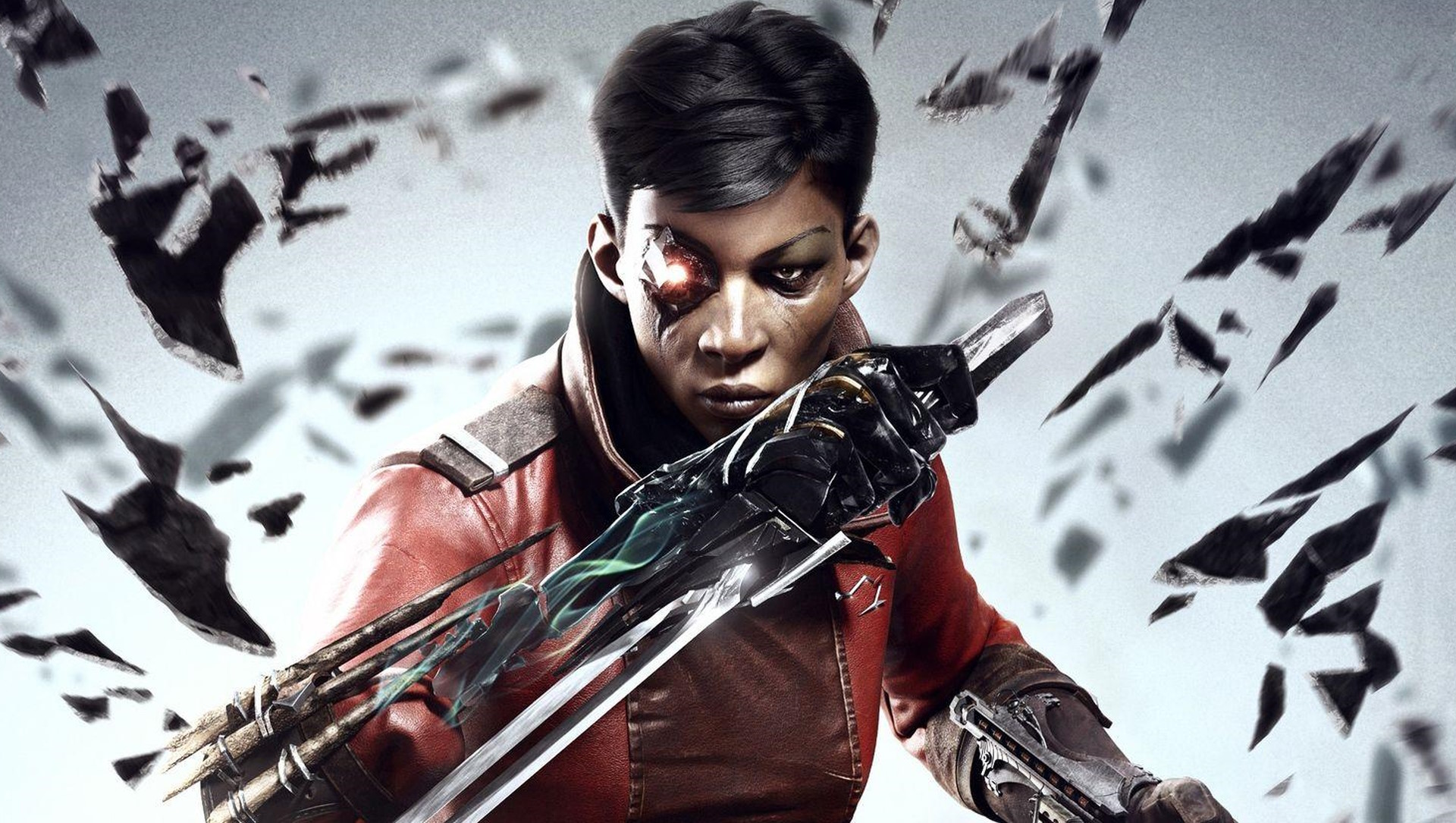Deathloop exists because Dishonored 3 ain't happening
Oh for a time travel device…

Deathloop: Now there's one that came and went. Though the game was received very positively and many still swear by it now, personally I haven't played anything so irritating in recent memory: The way the characters yap constantly, the graffiti all over the place, the completely unfulfilled promise of time-travelling flexibility… yeah, OK, it didn't land for me.
But it did for others, and was arguably somewhat successful in presenting elements of the immersive sim genre in a new light. It may have lacked the grandeur and complexity of developer Arkane's Dishonored games, but I'd bet that more Deathloop players have finished the game than either of the Dishonoreds. And it always felt like that was the brief. Arkane make, well, gorgeously arcane and lavish labyrinths and Bethesda, clutching the purse strings, went "yeah d'you think you could do that but maybe make it a bit easier to sell to people?"
Just a hunch but, going on what Arkane founder Raphaël Colantonio said in a recent interview, it probably was something along those lines. Deathloop's concept came from wanting to make a "small game" before the next huge project. "Bethesda wanted us to do something," Colantonio told RPS in a new interview. "They didn’t quite know where we were going after Dishonored. 'Do we want Dishonored 3? I don’t know, let’s make something simple and short before, and let’s see.'"
Do we want Dishonored 3? Why didn't they just say 'yes' and go from there?!? And of course as things progressed, Deathloop turned out to be anything but a small game.
"And then [Deathloop] became a big thing, over the years," said Colantonio. "That was the funny thing: 'Nah, we don’t wanna do Dishonored 3, but if you can pitch us a small game, something that maybe has multiplayer so we can learn multiplayer, something that maybe has microtransactions, maybe something with a lot of recycling, like a roguelike.'"
Ah yes, that canard of great game design: Something that maybe has microtransactions. The roguelike element became the focus, but the game ended up as something which I suppose is a little oxymoronic: A curated roguelike, with four locales that shuffled their elements depending on the time of (the game's single) day.
"Almost everybody in the world was into some sort of roguelike. So it felt like, ‘Yeah, maybe it’s the way to go, you recycle gameplay, you take some of the elements of the world and remix content constantly.'" said Colantonio. What started as a small project began to scale until eventually it became the full-fat Deathloop. "It would probably cost just as much to make Dishonored 3," says Colantonio. "But back then it was not meant to be."
The biggest gaming news, reviews and hardware deals
Keep up to date with the most important stories and the best deals, as picked by the PC Gamer team.
I never really expected Dishonored 3. To be honest, I was surprised Arkane got the greenlight to make Dishonored 2. The sad thing about these beauties is that they've never quite had the commercial, mainstream appeal of more straightforward shooters, and games need to make money. That's probably why Arkane's next game is Redfall, a co-op vampire looter-shooter, though unfortunately our own Robin went hands-on recently… and is worried it might suck.

Rich is a games journalist with 15 years' experience, beginning his career on Edge magazine before working for a wide range of outlets, including Ars Technica, Eurogamer, GamesRadar+, Gamespot, the Guardian, IGN, the New Statesman, Polygon, and Vice. He was the editor of Kotaku UK, the UK arm of Kotaku, for three years before joining PC Gamer. He is the author of a Brief History of Video Games, a full history of the medium, which the Midwest Book Review described as "[a] must-read for serious minded game historians and curious video game connoisseurs alike."

